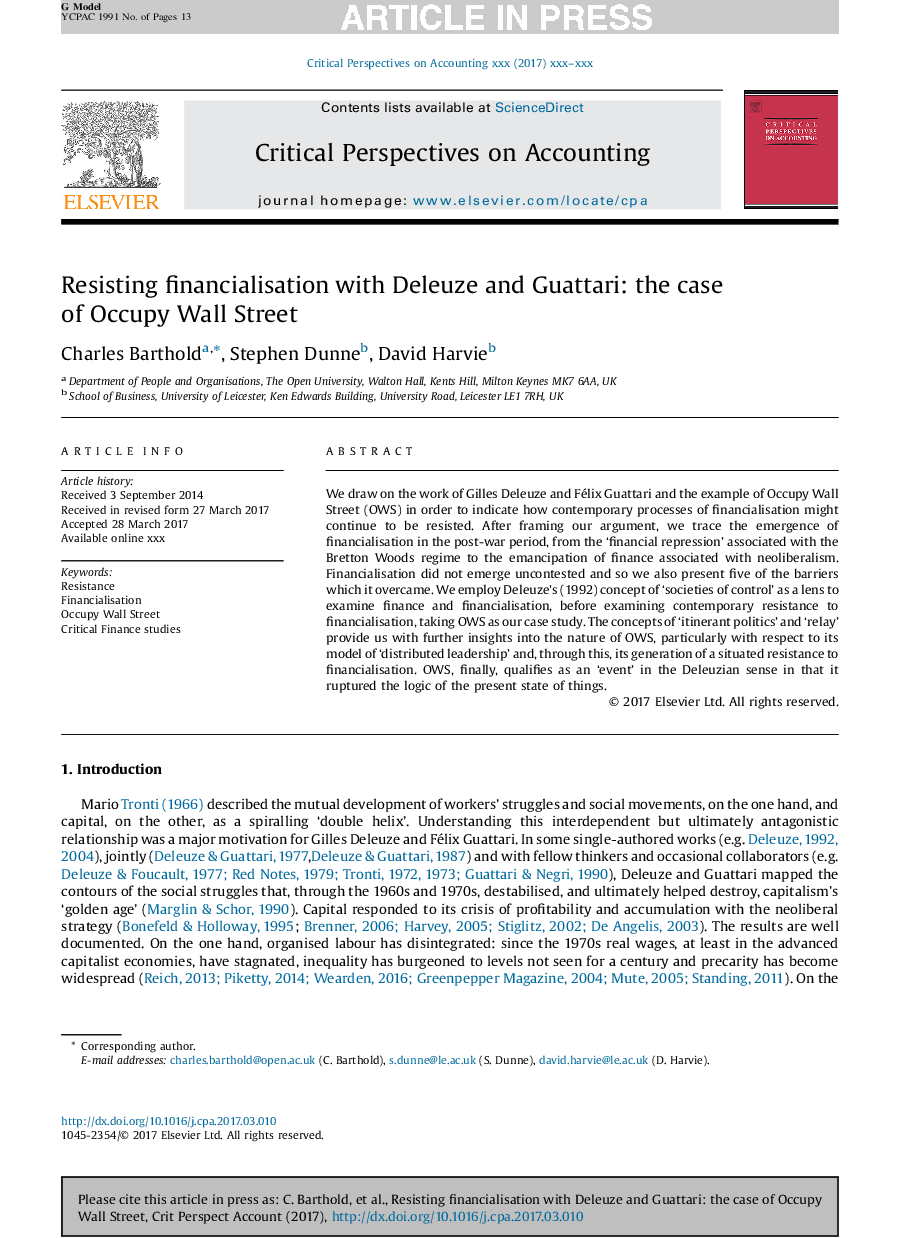| Article ID | Journal | Published Year | Pages | File Type |
|---|---|---|---|---|
| 7411959 | Critical Perspectives on Accounting | 2018 | 13 Pages |
Abstract
We draw on the work of Gilles Deleuze and Félix Guattari and the example of Occupy Wall Street (OWS) in order to indicate how contemporary processes of financialisation might continue to be resisted. After framing our argument, we trace the emergence of financialisation in the post-war period, from the 'financial repression' associated with the Bretton Woods regime to the emancipation of finance associated with neoliberalism. Financialisation did not emerge uncontested and so we also present five of the barriers which it overcame. We employ Deleuze's (1992) concept of 'societies of control' as a lens to examine finance and financialisation, before examining contemporary resistance to financialisation, taking OWS as our case study. The concepts of 'itinerant politics' and 'relay' provide us with further insights into the nature of OWS, particularly with respect to its model of 'distributed leadership' and, through this, its generation of a situated resistance to financialisation. OWS, finally, qualifies as an 'event' in the Deleuzian sense in that it ruptured the logic of the present state of things.
Keywords
Related Topics
Social Sciences and Humanities
Business, Management and Accounting
Accounting
Authors
Charles Barthold, Stephen Dunne, David Harvie,
